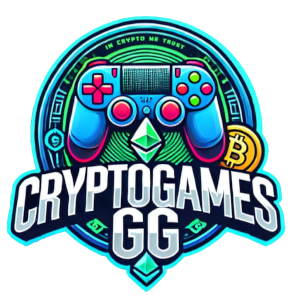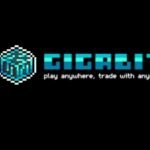Few stories in Web3 gaming are as improbable and inspiring as the rise of Pixels. This farming RPG, created by a small team with a minimal budget and featuring simple pixel art, became the biggest success in Web3 gaming in 2024.
It all began with just $200 in the company’s wallet. Remarkably, within a day, that amount grew to $2.4 million. By 2024, with less than $2,000 spent on marketing, Pixels skyrocketed in popularity, attracting 500,000 daily active players.
However, the real story begins much earlier, back in 2020, during the global lockdown, when founder Luke Barwikowski was experimenting with online social worlds.
Lockdown Seeds the Idea: Banger Digital (2020)
During the 2020 pandemic, Luke and his team launched Banger Digital, an experimental platform combining:
- Club Penguin-style avatars
- Zoom-like social rooms
- Mini-games designed for “online parties”
Unexpectedly, it attracted both users and companies looking to host virtual events. However, users logged in only once a week and then disappeared. There was no persistence, no progression, and no reason to return. This failure revealed a crucial insight: connection matters, but persistence is everything.
To improve user retention, the team developed Mesh, a spatial video-chat platform that allowed users to move around virtual rooms. While it was clever and ambitious, it ultimately felt forgettable. Users still didn’t develop a habit of returning, and by late 2021, Mesh was shut down. During this period, Luke, who had been programming games since the age of 12, grew up playing RuneScape and mined Bitcoin as a teenager, realizing precisely what he wanted to create: a living world with gameplay, community, and a real economy that people would like to engage with every single day.
November 9, 2021: The Birth of Pixels
On November 9, 2021, the Pixels identity officially launched:
The founding team comprised:
- Pixel_Luke
- Ivan
- Pixel_Fucious
- RagPoet
- Honz
- Dom
- Moyer
Their goal was to build a charming pixel-art social world that would onboard millions into Web3.
The first public version of Pixels was launched on November 17, 2021, just eight days after the project began. The initial NFT integration, Pixel Beasts, attracted a community that significantly boosted early activity. This led to a pivotal phase known as Play-to-Mint (P2M), which rewarded early players with whitelist opportunities through weekly in-game quests. Key dates included:
- Dec 3, 2021: P2M was introduced
- Dec 6: Snapshot for early “OG” Discord members
- Jan 31, 2022: Public mint at 0.06 ETH
- Feb 1: NFT Farms revealed with functional traits
- Feb 4: Golden Rakes airdropped to the top 101 players
By March 2022, Pixels had launched Early Access for landholders and reached 1,500 daily active users (DAU), a remarkable achievement for a brand-new indie Web3 game. The moment that transformed everything occurred on February 11, 2022, when Animoca Brands and PKO Investments led a $2.4 million funding round, with support from OpenSea and other strategic partners. Pixels now had the resources to grow.
The Play-to-Airdrop Era & Chapter One (2022)
In 2022, Pixels introduced Play-to-Airdrop, igniting an explosion of community participation through:
- Events
- Quests
- Seasons
- Decoration contests
- World resets
- Frequent updates
Then came a milestone moment: on November 16, 2022, Chapter One was launched, introducing the $BERRY token. This marked the beginning of the iconic Pixels gameplay loop: gathering, crafting, progression, and socializing. Pixels now had gameplay depth, progression, and emotional stickiness, yet it still lacked the necessary distribution for scaling.
The Migration That Changed Everything: Moving to Ronin (Oct 30, 2023)
Initially, Pixels launched on Polygon but faced challenges, including limited reach, minimal discoverability, and friction for casual players. On October 30, 2023, Pixels made a transformative decision to migrate to Ronin. The results were immediate: DAU soared from 5,000 and 10,000 to over 170,000. Thousands of inactive wallets returned, and the Axie community helped amplify the game globally, particularly across Asia and Latin America.
Luke described Ronin as operating like a game publisher, possessing real experience in building communities. This migration sparked Pixels’ global growth, now known as The Ronin Effect.
2024 The $PIXEL Token
In 2024, Pixels reached a significant milestone with the launch of the $PIXEL Token, developed within the Ronin ecosystem. This token was explicitly designed to avoid the pitfalls of past Play-to-Earn (P2E) mistakes. Key features included:
- Sustainable rewards
- Reputation-based systems
- Real utility
- Governance
- A balance between fun and progression
Next, on June 18, 2024, it introduced Chapter 2: a complete evolution of Pixels. The results were significant, boasting:
- 500,000 Daily Active Users (DAU)
- 2.5 million total players
- One of the largest Web3 gaming communities on the planet
Pixels had transformed from just a game into the face of Web3’s resurgence and demonstrated what many believed to be impossible:
- You don’t need AAA budgets.
- You don’t need hype-driven tokenomics.
- You don’t need millions spent on marketing.
What you really need is:
- A real community
- Persistence
- A compelling world
- A sustainable economy
- A team that executes relentlessly
For many, including @VELITA_OLAGG, whose thread inspired this article, Pixels became the game that brought them back to Web3, a simple pixel farming game that revitalized an entire industry.











